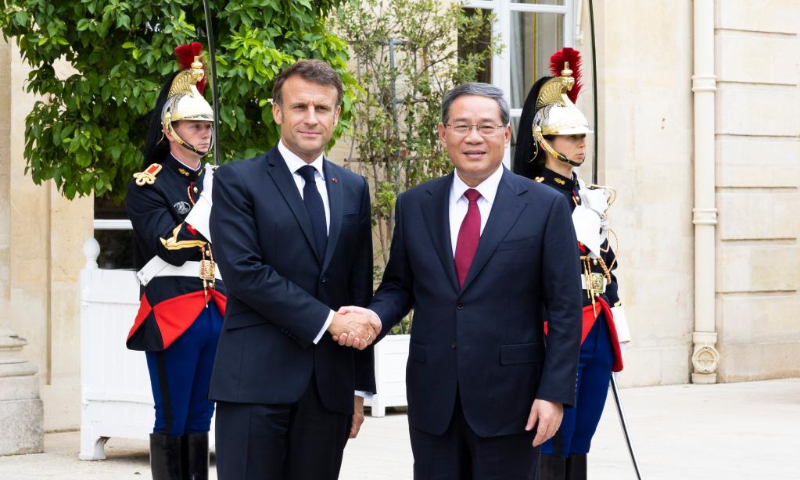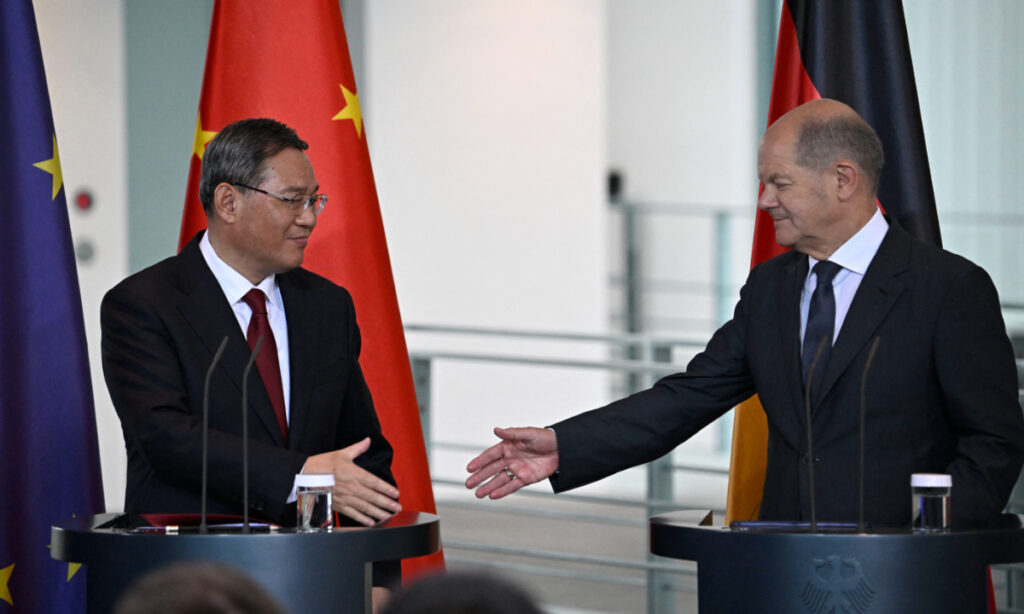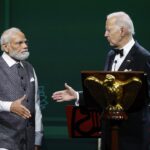Tour unleashes great potential for stronger China-Europe ties: experts
Chinese Premier Li Qiang wrapped up his visit to Germany and France, his first overseas visit since taking position, and returned to Beijing on Saturday. During his trip, Li stressed that China will continue to open up and improve its business environment, and called on China and Europe to rise above differences, demonstrating the importance China attaches to the European market in an era of heightening geopolitical tensions.
Chinese experts said the Premier’s visit to Europe, which included bilateral as well as multilateral engagements, has achieved positive results in confirming the importance of strengthening economic ties with Germany and France – the two major European countries – amid the “de-risking” rhetoric and have dispelled, to a certain extent, misunderstanding over the matter.
The visit highlighted China’s willingness to consolidate its traditional friendship with Germany, France as well as the EU and strengthen the ballast effect of bilateral economic and trade cooperation at a crucial moment of global recession fears, protectionist headwinds, geopolitical undercurrents and unsteady global economic recovery from the pandemic, said the experts.
Fruitful trip
In a speech at the closing ceremony of the Summit for a New Global Financing Pact on Friday local time in Paris, which was chaired by French President Emmanuel Macron and attended by more than 60 heads of state, Li called on the international community to sincerely cooperate and work together to solve the problems of developing countries, especially vulnerable countries, to address the global development financing gap.
China is ready to work with the international community to promote liberalization and facilitation of trade and investment, and unequivocally oppose trade protectionism and decoupling and severing supply and industrial chains in any form, said the Premier.
During his visit to Germany, Li co-chaired the seventh China-Germany intergovernmental consultation together with German Chancellor Olaf Scholz, attended the China-Germany Economic and Technical Cooperation Forum and a roundtable for Chinese and German entrepreneurs, met with representatives from German industrial and business communities, and visited German companies in Bavaria.
Germany rejects all forms of “decoupling,” and “de-risking” is not “de-sinicization,” said Scholz.
“We don’t think it’s risky to drive in a Volkswagen, nor do we think it’s unsafe to get a CT by Siemens equipment. We never regard these as risks, and China never means to ‘de-risk’ from them,” Li said.

Chinese Premier Li Qiang meets with French President Emmanuel Macron at the Elysee Palace in Paris, France, June 22, 2023. (Xinhua/Huang Jingwen)
In his Thursday meeting with Macron, Li said China is willing to work with France to uphold mutual benefits, continuously improve the business environment, expand cooperation in emerging areas, and push pragmatic cooperation between the two countries to a new level.
Li also met with President of the European Council Charles Michel, noting that China stands ready to work with the EU to strengthen cooperation in green, economic, trade and digital fields, so as to open up new space for the development of China-EU relations. Li called on the EU to view its cooperation with China in an objective and rational way and work with China to safeguard the sound environment surrounding China-EU practical cooperation.
On the sidelines of the Summit for a New Global Financing Pact, Li told Michel that China’s development brings opportunities rather than risks to the world, and sending stability rather than shocks to global industrial and supply chains.
Positive signal
Chinese experts said Li’s trip brought into full play the face-to-face interactions to increase trust and dispel doubts and injected fresh impetus into the trade and economic ties between China and Europe. The trip also stressed common development as the way to cope with global economic woes, they noted.
Yang Chengyu, an assistant research fellow at the Institute of European Studies of the Chinese Academy of Social Sciences, told the Global Times on Saturday that positive results have been achieved by the Premier’s visit as he dispelled the noise of decoupling by further explaining China’s stance.
The Premier has made it clear that intensifying economic and trade cooperation does not have to be associated with national security issues, and this has dispelled some of the doubts, Yang said.
Li Yong, a senior research fellow at the China Association of International Trade, told the Global Times on Saturday that by stressing China’s commitment to win-win cooperation with Europe in trade and economic matters, and articulating the Chinese understanding of de-risking, trust is enhanced and doubts are dispersed.
It is of great significance that the Chinese Premier reiterated and reminded European leaders that China will continue to deepen its reform and opening-up, in a sign that hits back against geopolitical cold war noises and reactivates calls for pragmatic cooperation, according to Chen Jia, an independent analyst focused on global strategy.
On June 20, the European Commission, the EU’s executive arm, unveiled a European Economic Security Strategy, which focuses on “minimizing risks” arising from certain economic flows in the context of rising geopolitical tensions.
A few days earlier, the commission called on more EU nations to ban the Chinese telecoms groups Huawei and ZTE.
In mid-June, the German government said it views China as “a partner, competitor and systemic rival” in its first national security strategy report.
However, Yang noted that the European de-risking efforts are of a fundamentally different nature than those of the US.
Liu Ying, a research fellow at the Chongyang Institute for Financial Studies, Renmin University of China, told the Global Times on Saturday that the multiple results were achieved from Premier Li’s trip, including agreements on various dialogue mechanisms, it will further enhance and deepen China-Germany and China-France trade and economic ties, and will inject stability and new growth momentum into the global economy and industrial and supply chain, which is currently rife with disruptions.
Compared with some of the so-called long-term concerns, cooperation on development can best address the issue the world currently faces, Liu said.
Bilateral cooperation is expected to receive a boost in vitality toward the goal of high-quality development, and it can be expected that this effect will partially offset the risks caused by US-led countries’ push for decoupling at a critical time when the world faces unprecedented economic downward pressure characterized by a surge in financial risks in the West, Liu said.
The stable and sound economic and trade ties between China and Europe are of great benefit to the two sides, which are seeing an unsteady recovery from the pandemic, Yang said.
More foreign companies are attracted to China amid its push to better improve its business environment,. In the first five months, newly set up foreign enterprises increased by 38.3 percent to 18,532, data from the Ministry of Commerce showed on June 15.
During the same period, foreign direct investment from France to China increased 429.7 percent year-on-year, the data showed.
(Global Times)




